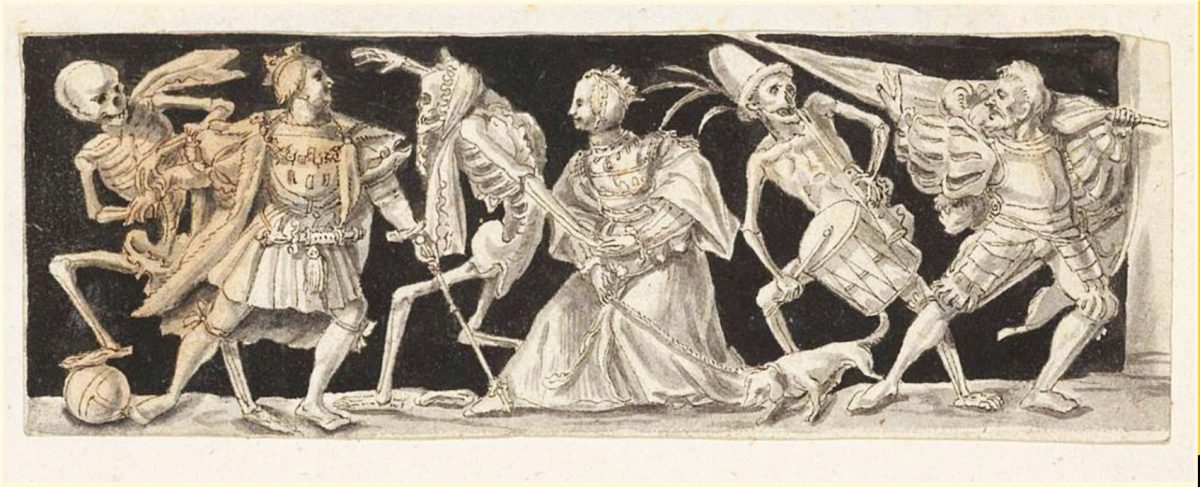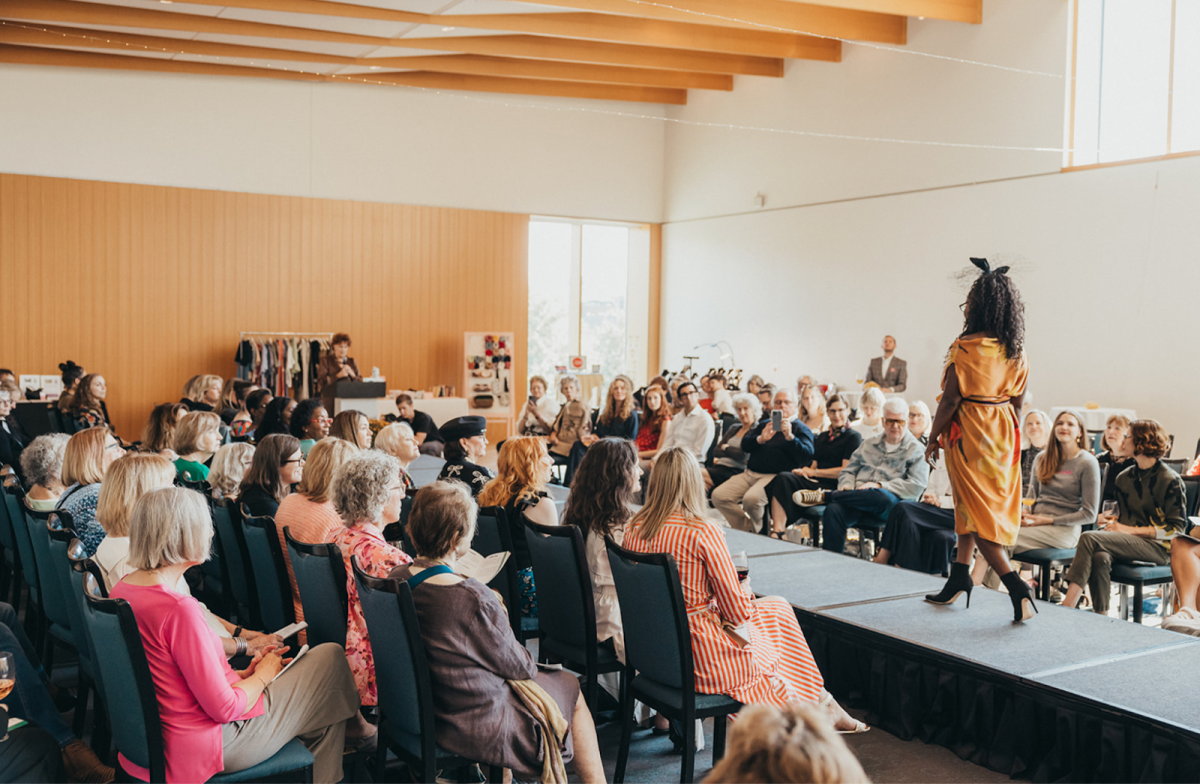(Spoiler Alert, CW: sexual assault and suicide)
Sitting in the AMC theater, Icee in hand, I had no idea I would be watching one of my new favorite movies. I went into “Poor Things” with very little context, only knowing that Emma Stone essentially plays a female Frankenstein.
The film follows Bella Baxter: a pregnant woman who dies by suicide but is brought back to life with the brain of her fetus by Dr. Godwin Baxter, played by Willem Dafoe. In an adult’s body, she has the mind of a child and must relearn how to speak, walk and overall function as a human being. Restricted to the confines of her house, she has only grown to know her surrogate father and household maids until Duncan Wedder, played by Mark Ruffalo, whisks her away. Free from her home, she begins to explore the world and learn about society through the lens of an unprejudiced newborn’s point of view.
Watching “Poor Things” on the big screen, I got to experience the full extent of director Yorgos Lanthimos’ fish-eye lenses and experimentation with depth of field. As viewers, we learn about the fantastical, surrealist storyworld at the same time as Bella. As she starts to walk, the dimensions of her environment are skewed with different camera angles, distances and lenses, creating a disorienting viewing experience that matches hers as she gains an understanding of the world around her.
Beginning in black and white, the film switches to color after she leaves her home, creating a new sensory experience as we too see the outside world for the first time. In a fantastical setting, trams travel across the sky and buildings loom with unique architectural shapes. The sky constantly changes with oversaturated purples, blues and greens. In a surrealistic sense, the color palette leaves us with a rudimentary understanding of Bella’s surroundings with a similar perspective to hers.
Blending temporal cues, Bella’s outfits are reminiscent of many historical eras with pops of dystopian details; her corsets are accompanied by brazen, puffy shoulders, and her ruffled blouses are paired with bright yellow shorts. In tandem with their technology-heavy environment, Duncan and Bella talk about “proper society,” in which he tries to educate her on manners resembling those of high-class from past ages. This ambiguity of their temporal reality creates a unique sensory experience that left me unable to predict what was going to happen next.
I can confidently say that I have never seen a movie where I have actively felt so drawn into world building and character development. But, after the novelty wore off, I had some qualms about the portrayal of Bella’s discovery of sexuality.
For context, Lanthimos is a cisgender, Greek man. Although the film claims to be feminist, the main perspective behind the scenes stems from a place of detached privilege, an extremely important detail when regarding the sheer amount of sex occuring.
Throughout the film, Bella discovers sex, and her unabashed engagement in it becomes a prevalent theme. From the start of her sexual awakening, I was extremely uncomfortable — so much so that I was almost positive the perverseness I was feeling was intentional and going to be a theme that developed later (spoiler alert: it was not). Her introduction to existence is voyeuristic from the start; Dr. Baxter’s assistant Max McCandles, played by Ramy Youssef, is hired to follow and watch her as a science experiment. She exists as a spectacle, a case study for the scientists. As a literal child, she learns to exist in the world around her and Max documents her progress.
When Bella throws a temper tantrum about wanting to leave, her father suffocates her to the point of passing out. With sinister musical accompaniment, her maid ominously undresses Bella’s unconscious body as Max watches. When she wakes up later, the scene is interrupted by clips showing the revival of Bella’s dead body, connecting her conditions of existence and lack of consent to the invasive quality of her newly created life.
After waking up, she discovers masturbation, shown with an extreme close-up of her mouth moaning. Watching, I felt disgusted. Not with her exploration of sexuality, but of my positioning as a spectator. In a Lolita-esque sense, I felt like an adult preying on a child, like I was watching Bella without her consent — as highlighted by the previous emphasis on her unconscious body and flashbacks.
From this point on, I expected this feeling to be a facet of exploration — an intentional, forced recognition of my own position as a perverse spectator done through extreme uncomfortability. However, this recognition of perversion never followed.
After watching her, Max confesses his love to Bella and proposes, and she agrees to marry him. While finalizing their marriage, Duncan arrives to notarize the contract but convinces Bella to leave Max and instead travel the world with him. Duncan “convinces” Bella by touching her sexually, which opens up possibilities of a world that Bella has never experienced before. Glorified as a new opportunity of freedom, the encounter is a form of sexual assault. Bella never consents to his molestation.
As a child, she has no concept of love or sex and is unable to explore her sexuality in a free environment. She exists under the controlling gaze of her father and Max, unable to understand yet what her desires are. Her would-be marriage has a jarring power imbalance that would perpetuate this gaze had she not escaped it, but, as she leaves with Duncan, this portrayal of her “newfound freedom” pushes a dangerous rhetoric that promotes rape culture. She leaves her home under the watch and control of another man, still existing in a patriarchal system that facilitates her forced reliance.
As she explores the world and eventually leaves Duncan, Bella finds work at a brothel. She learns about sex work, finding herself empowered and independent — no longer relying on Duncan for material wealth. At first, her new career seems like a step forward — Bella finally exists outside of the confines of patriarchal control, but the dynamics of her workplace transfer her ownership from a patriarchal manner to an exploitative, capitalist relationship with her boss.
To her boss, Bella brings up not wanting to have sex with clients that she feels disgusted by. Bella complains “we are machines,” and her boss responds with “you are my children.” As the first female example of authority in Bella’s life, her boss takes on the role of a mother to her and manipulates their relationship. Although Bella has escaped the direct manipulation of men as caretakers, she still is ultimately within the confines of a controlling relationship where unconsenting sex is legitimized for its economic benefits.
Working at the brothel, Bella starts to attend socialist meetings with a new friend of hers. It was at this point in the film that I held on to my last sliver of hope for Lanthimos to turn it around, and I started to get back on board with this more nuanced method of establishing Bella’s personhood and autonomy. Was she going to realize the exploitative nature of her workplace? Understand the workings of capitalism and, in turn, the workings of the patriarchy within it that have facilitated her entire way of being so far?
Not quite. Her socialist meetings become a fleeting detail that aren’t mentioned again. But, her relationship with her friend Toinette does develop in the time they spend together. The two of them end up having sex together, which I believe to be the only time that Bella participates in sex in a truly liberated way. Only here is Bella able to escape the patriarchal power dynamics within sex that have been present up until now — even the structuring of the scene itself is in opposition to every other sex scene in the film.
The other sex scenes last roughly over twenty seconds, contain comprehensive close-ups and have intense, pornographic audio. When Bella has sex with Toinette, the act itself is on screen for no more than ten seconds. Toinette performs oral sex, and for the first time, Bella has sex outside of a transactional guise — Duncan funded her travels and educated her about the world to have sex with her, and everyone at the brothel pays Bella. Here, she receives pleasure without giving anything in return. Even the lack of screen time and cut transitions create the sense that they continue to have sex in the time between transitions, restricting our own, voyeuristic view as an audience.
I felt so relieved watching this scene. It felt like a justification of my frustration, that all along the film was actually building up to this pivotal moment. But, Bella’s progress comically implodes in on itself. Toinette isn’t seen again until the very ending, and Bella returns home after hearing about her father’s illness. On the day of her return, she gets engaged to Max. Again.
In Bella and Max’s conversation where they discuss their previous relationship, Bella deems her previous living situation with her father and Max as one of ownership. She contrasts this with her job as a sex worker, but this logic is faulty — she was still under the ownership of her boss. Her existence was still based in transaction, but instead of scientific data, she was providing sexual acts. Bella also brings up how young she was when they had originally planned to get married. Here, Max says he still loves her, and they decide to get engaged.
Watching this scene felt like a cruel joke to me. All possibility of a proper representation of sex and autonomy flew out the window. Bella’s conditions of existence revert back to the very beginning of the film: except for her development in intelligence, she is content with living in a transactional relationship with a man who still, fundamentally, does not know who she is. After her radical phase as a socialist sex worker, she ultimately returns to participate in the age-old ceremony of marriage rooted in patriarchal ideas of possession.
The wedding is ultimately interrupted, and her surprise husband from her previous life takes her back to his mansion to live together. Bella quickly learns that he expects her to be an obedient wife, which she is not willing to do. He considers her to be territory, and his solution to her disobedience is to make her undergo genital mutilation. He directly equates her sense of autonomy and personhood to her sexuality, and she confirms this association. She equates her genitals to her “questioning self,” referring to her brash sense of personhood that she develops throughout the entirety of the film.
The final nail in the coffin, she dehumanizes herself by deeming her entire being as equal to her sense of sexuality, which has only been explored in transactional ways. Ultimately, my feelings of uncomfortability were never “justified” for lack of a better term, and instead I became more and more upset with the overall representation of sex.
Ultimately, I think that this film could have majorly benefitted from a heavier female presence behind the scenes. The plotline’s nearly-there sense of feminism is very telling of the directorial organization — in her review on Vulture, Angelica Jade Bastien claims that “in many ways, the film demonstrates the limits of the modern cis-male auteur’s vision for and about women.”
In the weeks after watching, I have yet to truly feel negative about the film. The sensory experience of watching “Poor Things” was otherworldly, and the treatment of Bella Baxter as a character created an intellectual engagement that I thoroughly enjoyed exploring. Ultimately, the film still ends on Bella’s terms, which is a resolution I can find myself happy with.








Jes • Mar 13, 2024 at 11:46 pm
Society encourages men to explore their sexuality and to never be ashamed of it. Men like Mark Ruffalo’s character are considered “charming” and “flirtatious”. Bella has no preconceived notions about gender roles. All human beings must age into puberty – years and years of asexuality during childhood allow for gender norms and societal expectations/ standards to effect our view of the world and of ourselves BEFORE our first feelings of sexual desire ever arrive. Bella unabashedly enjoyed lust and sex and her own body. The fact that this *disgusted* you and made you so extremely uncomfortable proves the author’s (of the original book… not the director the of the film) point.
Jordan • Jun 1, 2024 at 9:22 am
I turned the movie off by the time rhe brothel came about. Funny how this movie airs on Disney plus. The entire movie us about having sex with a baby in a woman’s body. It’s about having sex with children. It’s messed up and completely shows the agenda to sexualise children.
And rape them.
Claire • Feb 25, 2024 at 4:30 pm
Check out the book Poor Things by Alasdair Gray. The film diverges significantly from the original story which is far more feminist IMO.
Jill Tatter • Mar 13, 2024 at 12:15 pm
Yes, this!^^^ I would much rather see the book version of the movie.